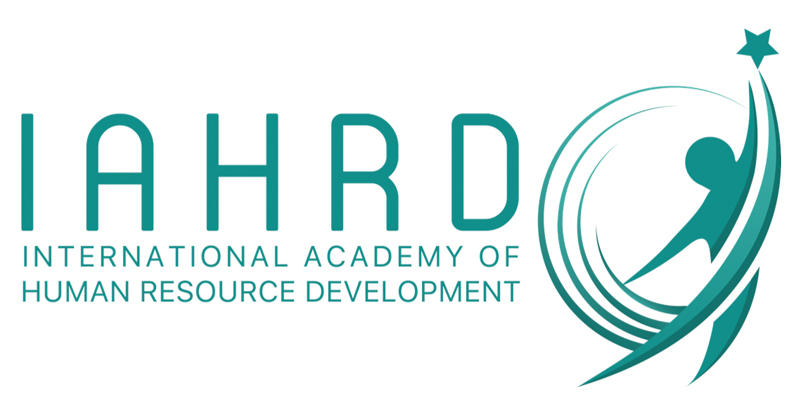
Advanced Strategies to be Used in Improving Performance of Accountants and Auditors
Powerful Strategies in Different Business Fields :Accounting, Financial Control and Appraisals
Introduction :
We are the International Academy of Human Resource Development (IAHRD), extremely proud to offer you the Powerful Strategies in Different Business Fields :Accounting, Financial Control and Appraisals' Course. This course has taken lots of professionals' efforts to be introduced in this quality. The course will tackle different areas like different roles for different positions, the use of financial statements, the best financial practices , financial control , risk management and other essential topics to be understood.
Keep in your mind that we will follow up with you step by step!
Objectives:
At the end of the program, participants will be able to:
- Characterise the best practices for the roles of CFO's, controllers, treasurers, and accountants. Understand the relationship between different financial statements (Income Statement, Balance Sheet, And Statement Of Cash Flows).
- Fully fathom the practical use of financial statements to measure the financial / strategic performance of an organization on the long run .
- Apply the best practices in Discounted Cash Flow (DCF) techniques and its' proper implementation in financial decision-making.
- Discuss Corporate Performance Management through introducing key success factors, weak and strong financial signals in various industrial sectors.
- Fully understand the Value Creation/Destruction process in mergers and acquisitions from the market's perspective in parallel with signals to management from the market.
- Elicit the respective roles of directors, auditors, and others in the corporate governance.
- Describe the numerous sources of data in finance and business that adds a better understanding in different business and financial strategies.
- Delve into more details in financial control, risk management, and financial reporting from the internationally recognized professional associations such as IFAC, IASB, SEC, OECD, and Others' point of view.
Contents :
Module 1 :
- The role of functional management in respect to financial management.
- The basic financial statements and their articulation.
- Evaluating performance, and why ROI is still a good place to start?
- Competitive perspectives related to financial statements.
Module 2 :
- Best practices in preparing, presenting, and populating financial statements.
- Identifying key success factors in industry sectors.
- Short-term success evaluation processes and measures.
- Weak signals for future strategic adjustments.
Module 3:
- Best practices in financial review, compared to targets and expectations.
- Financial performance measurement systems.
- Best strategies in finding and using key accounting assumptions.
- Matching business system with financial results.
- Benchmarking external reviews, industry reports, and analyst reports.
- Best practices in boards of directors and their move to financial literacy.
- Finding best practices in non-financial inputs to financial statements.
Module 4:
- Activity based costing, time-based costing, and competence based costing and financial analysis.
- Presenting and communicating to executive audiences the best practices in finance andaccounting.
- Challenging the finance function to best practices.
- Exercises and case studies.
Who Should Attend?
- General Managers who want to expand their understanding of financial functions/processes.
- Financial and non-financial managers who Wish To expand their high potential knowledge, improve their skills, and recondition their Attitudes in comparison to other regular managers.
- Functional Managers who have realized the importance of looking at the big picture through having a more integrated financial view for the system.
times [ Istanbul ]
| from | to | price $ | venue | actions |
|---|---|---|---|---|
| 2025-04-06 | 2025-4-10 | 3,750 | Istanbul | join enquire |
| 2025-04-13 | 2025-4-17 | 3,750 | Istanbul | join enquire |
| 2025-04-20 | 2025-4-24 | 3,750 | Istanbul | join enquire |
| 2025-04-27 | 2025-5-1 | 3,750 | Istanbul | join enquire |
| 2025-05-04 | 2025-5-8 | 3,750 | Istanbul | join enquire |
| 2025-05-11 | 2025-5-15 | 3,750 | Istanbul | join enquire |
| 2025-05-18 | 2025-5-22 | 3,750 | Istanbul | join enquire |
| 2025-05-25 | 2025-5-29 | 3,750 | Istanbul | join enquire |
| 2025-06-01 | 2025-6-5 | 3,750 | Istanbul | join enquire |
| 2025-06-08 | 2025-6-12 | 3,750 | Istanbul | join enquire |
| 2025-06-15 | 2025-6-19 | 3,750 | Istanbul | join enquire |
| 2025-06-22 | 2025-6-26 | 3,750 | Istanbul | join enquire |
| 2025-06-29 | 2025-7-3 | 3,750 | Istanbul | join enquire |
| 2025-07-06 | 2025-7-10 | 3,750 | Istanbul | join enquire |
| 2025-07-13 | 2025-7-17 | 3,750 | Istanbul | join enquire |
| 2025-07-20 | 2025-7-24 | 3,750 | Istanbul | join enquire |
| 2025-07-27 | 2025-7-31 | 3,750 | Istanbul | join enquire |
| 2025-08-03 | 2025-8-7 | 3,750 | Istanbul | join enquire |
| 2025-08-10 | 2025-8-14 | 3,750 | Istanbul | join enquire |
| 2025-08-17 | 2025-8-21 | 3,750 | Istanbul | join enquire |
| 2025-08-24 | 2025-8-28 | 3,750 | Istanbul | join enquire |
| 2025-08-31 | 2025-9-4 | 3,750 | Istanbul | join enquire |
| 2025-09-07 | 2025-9-11 | 3,750 | Istanbul | join enquire |
| 2025-09-14 | 2025-9-18 | 3,750 | Istanbul | join enquire |
| 2025-09-21 | 2025-9-25 | 3,750 | Istanbul | join enquire |
| 2025-09-28 | 2025-10-2 | 3,750 | Istanbul | join enquire |
| 2025-10-05 | 2025-10-9 | 3,750 | Istanbul | join enquire |
| 2025-10-12 | 2025-10-16 | 3,750 | Istanbul | join enquire |
| 2025-10-19 | 2025-10-23 | 3,750 | Istanbul | join enquire |
| 2025-10-26 | 2025-10-30 | 3,750 | Istanbul | join enquire |
| 2025-11-02 | 2025-11-6 | 3,750 | Istanbul | join enquire |
| 2025-11-09 | 2025-11-13 | 3,750 | Istanbul | join enquire |
| 2025-11-16 | 2025-11-20 | 3,750 | Istanbul | join enquire |
| 2025-11-23 | 2025-11-27 | 3,750 | Istanbul | join enquire |
| 2025-11-30 | 2025-12-4 | 3,750 | Istanbul | join enquire |
| 2025-12-07 | 2025-12-11 | 3,750 | Istanbul | join enquire |
| 2025-12-14 | 2025-12-18 | 3,750 | Istanbul | join enquire |
| 2025-12-21 | 2025-12-25 | 3,750 | Istanbul | join enquire |
| 2025-12-28 | 2026-1-1 | 3,750 | Istanbul | join enquire |
